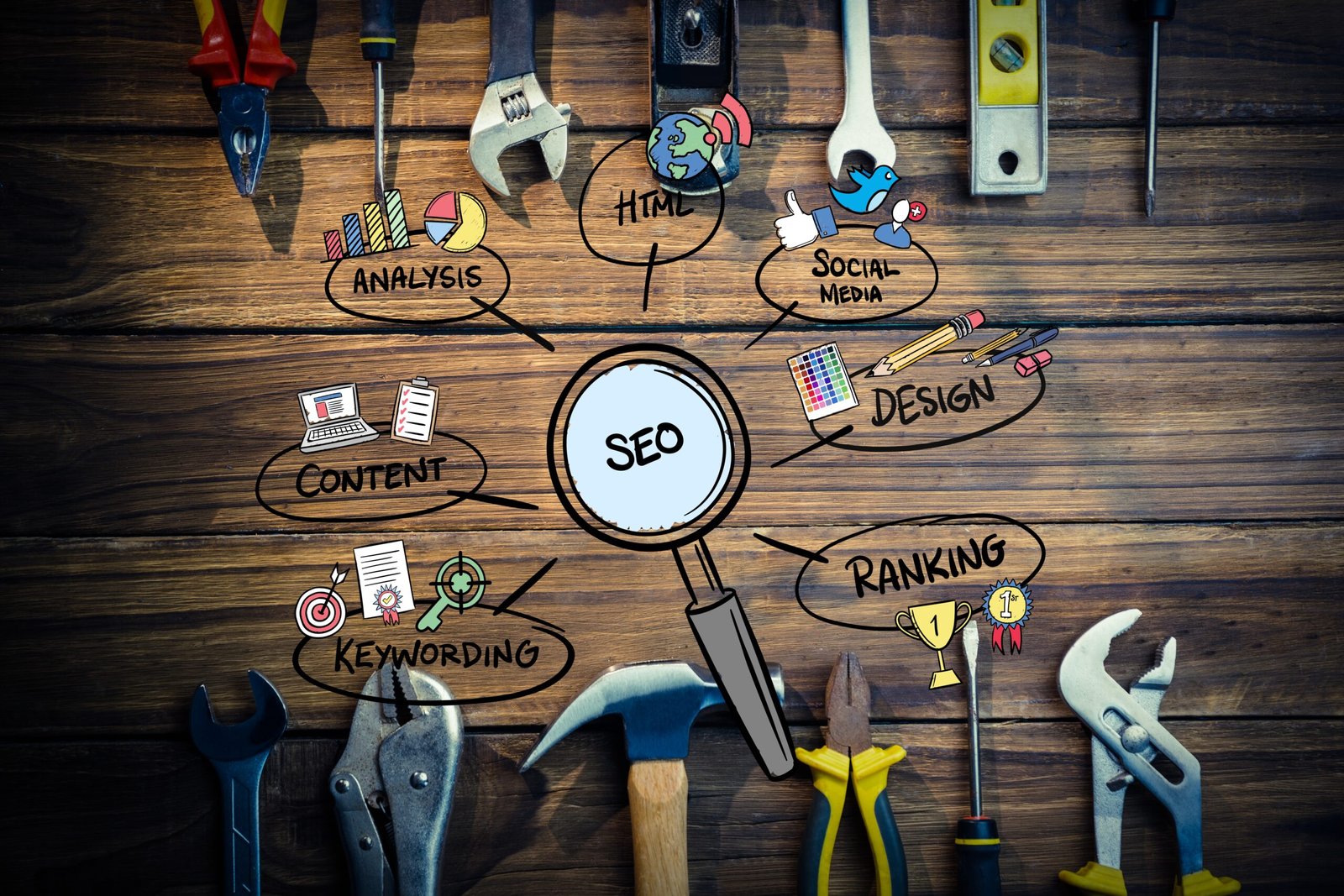In today’s digital marketplace, an online store must do more than simply exist—it must thrive. Ecommerce SEO is the strategic process of optimizing your online retail presence to capture high-intent traffic, convert visitors into loyal customers, and outshine the competition. In this ultimate guide, we explore the multifaceted benefits of ecommerce SEO while diving into practical strategies and in-depth tactics that every online retailer should consider.
Table of Contents
- Boosting Organic Visibility and Targeted Traffic
- Enhancing User Experience and Conversion Rates
- Cost-Effective Marketing and Long-Term ROI
- Gaining a Competitive Advantage in a Crowded Market
- Scalability and Future-Proofing Your Business
- Conclusion: Transform Your Online Store with Ecommerce SEO
Boosting Organic Visibility and Targeted Traffic
Keyword Optimization and Long-Tail Strategy
A core pillar of ecommerce SEO is keyword optimization. By identifying high-intent, product-specific keywords—such as “benefits of ecommerce SEO,” “buy [product] online,” or long-tail phrases like “affordable sustainable fashion online”—you tailor your content to match the exact needs of your audience. Integrating these keywords naturally into product descriptions, category pages, and blog posts ensures that your online store becomes the answer to user queries, leading to increased organic traffic.
- Long-Tail Keywords: Targeting specific search queries not only reduces competition but also attracts a niche audience that’s closer to making a purchase.
- User Intent: Understanding the search intent behind each query helps you craft content that meets the precise needs of your potential customers.
Rich Snippets and Structured Data
Implementing structured data on your ecommerce site can lead to rich snippets in search results. These enhanced listings display key information like product reviews, prices, and availability—helping your listings stand out.
- Improved Click-Through Rates (CTR): When users see extra details at a glance, they’re more likely to click, driving qualified traffic to your site.
- Enhanced Visibility: Rich snippets can give your products a competitive edge in crowded search results.
Enhancing User Experience and Conversion Rates
Mobile Responsiveness and Fast Load Times
In a world where mobile commerce is booming, having a mobile-responsive website is non-negotiable. Fast load times and an optimized mobile interface not only please search engines but also create a seamless user experience.
- Reduced Bounce Rates: Quick, responsive pages keep visitors engaged and reduce the chances of them leaving prematurely.
- Improved Mobile UX: A mobile-friendly design ensures that users can navigate your store effortlessly on any device.
Intuitive Navigation and Engaging Content
A well-organized site with clear, intuitive navigation is essential for ecommerce success. By structuring your site around user-friendly menus, filters, and category pages, you ensure that shoppers can easily find what they’re looking for.
- Content Quality Enhancement: High-quality images, detailed product descriptions, and customer testimonials build trust and encourage purchases.
- Call-to-Actions (CTAs): Strategically placed CTAs guide users through the sales funnel—from adding products to their cart to completing the checkout process.
Cost-Effective Marketing and Long-Term ROI
Content Marketing and Social Media Synergy
Ecommerce SEO is a cost-effective marketing strategy that builds long-term value. Unlike paid advertising, which requires ongoing investment, well-optimized content continues to drive organic traffic over time.
- Content Marketing: Regularly publishing blog posts, how-to guides, and product comparisons helps position your brand as an authority while improving SEO.
- Social Media Engagement: Sharing valuable content on platforms like Instagram, Facebook, and Pinterest not only boosts brand awareness but also drives additional traffic back to your online store.
Analytics, Reporting, and Continuous Improvement
An essential aspect of ecommerce SEO is tracking performance through analytics and reporting. Utilizing tools like Google Analytics helps you measure key metrics such as organic traffic, conversion rates, and user engagement.
- Data-Driven Decisions: Monitoring these metrics allows you to refine your strategies and allocate resources effectively.
- Continuous Optimization: Regular SEO audits and performance reviews ensure that your site adapts to evolving search engine algorithms and consumer behavior trends.
Gaining a Competitive Advantage in a Crowded Market
Backlink Building and Authority
Establishing authority through backlink building is a crucial component of ecommerce SEO. High-quality backlinks from reputable websites signal to search engines that your site is trustworthy and relevant.
- Enhanced Domain Authority: Earning quality backlinks can significantly improve your search rankings, making your site more visible to potential customers.
- Influencer Collaborations: Partnering with influencers and industry experts for guest posts or product reviews not only garners backlinks but also expands your reach.
Local SEO for Ecommerce and Geo-Targeting
For ecommerce businesses with physical locations or local customer bases, local SEO plays a pivotal role. Optimizing your online presence for local searches—using geo-targeted keywords and maintaining updated business listings—can drive local traffic and increase conversions.
- Google My Business (GMB): Claiming and optimizing your GMB listing ensures that local customers find your store quickly.
- Local Directories: Being listed in local directories further reinforces your local presence and boosts your credibility.
Scalability and Future-Proofing Your Business
Ecommerce SEO is not a one-time effort—it’s an ongoing strategy that scales with your business. As your online store grows, your SEO tactics can evolve to target new markets, expand product lines, and incorporate emerging trends such as voice search and AI-driven personalization.
- Evergreen Strategies: Investing in timeless SEO tactics ensures that your website continues to perform well over the long term.
- Adaptive Optimization: Staying updated with industry changes and algorithm updates enables your site to remain competitive, regardless of market shifts.
Conclusion: Transform Your Online Store with Ecommerce SEO
The benefits of ecommerce SEO are vast and multifaceted—from boosting organic visibility and attracting high-quality, targeted traffic to enhancing user experience and delivering a high return on investment. By integrating keyword optimization, content marketing, technical SEO, and local search strategies, your online store can gain a competitive edge in a saturated digital marketplace.
At Search Shark, we believe that a strategic, data-driven approach to ecommerce SEO can transform your business into a thriving online powerhouse. Embrace these detailed strategies today, and unlock the full potential of your online store for sustained, long-term success.










